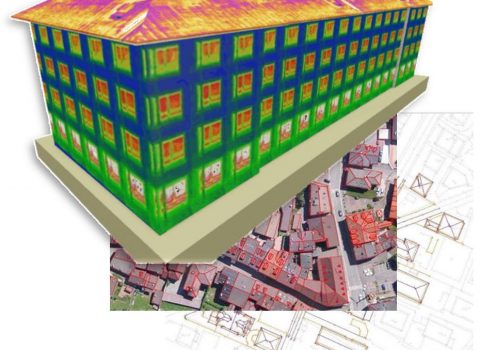FBK to coordinate the AIPLAN4EU project: artificial intelligence for European small and medium-sized enterprises
With a total funding of 5 million euros, Fondazione Bruno Kessler, in partnership with 15 international partners, will bring "automated planning" to the AI4EU platform
In January 2019, the European Commission launched an on-demand artificial intelligence platform (www.ai4eu.eu). A system that would allow members of the Community (scientists, innovators, businesses, citizens…) to access tools normally available only to research centers or large companies. This is the context of the project coordinated by the Foundation, which will develop a framework to make technology and guidelines related to automted planning accessible to any interested user. To this end, the project will develop interfaces capable of facilitating the adoption of automated planning technologies in the industrial environment. “A project – explains Paolo Traverso, director of the ICT center at FBK and head of AIPlan4EU – which will first of all allow many innovators to come into contact with a technology that has so far been the prerogative of a few selected companies. FBK has worked a lot in recent years on this type of systems and the participation in the project of large companies such as Airbus, Saipem and Procter & Gamble underline the importance of research in artificial intelligence and automated planning”. The three-year project was selected for funding and will start in 2021, coinciding with the opening of the new FBK “Digital Industry” research center, which sees automated planning as one of its main focuses.
What is automated planning and what is it for
Automated planning is a branch of artificial intelligence research where European scientists have traditionally achieved excellent results. In short, it is a decision-making technique that facilitates those who have to make decisions in various work areas, ranging from production to logistics. A particularly effective technology in areas where quick choices have to be made, such as in the case of flexible production or digital agriculture. All this takes place through automated reasoning systems based on predictive models. A solution that has not yet found shared standards and which is, to date, reserved only for specialists: “Although several very effective techniques have been developed over the years, – explains Andrea Micheli, FBK researcher and project contact – there are still obstacles that complicate the adoption of automated planning, thus limiting its positive impact on European industry. In this context, the AIPlan4EU project will allow easy access to anyone who needs these tools. ”
An example
A classic example is that of “flexible manufacturing”, where it is possible to decide how to modulate production based on the needs of the factory, often linked to a large number of data and operations. In these environments, the shift foreman of a department can hardly be aware of all the complexities connected to production, and here automated planning will act by suggesting, through suitable interfaces, which decision to make at a given time and which is the best solution to adopt to reduce costs, maximize productivity or improve the energy sustainability of the plant. In essence, it is a valid support for the decision that the manager on duty has to make.
FBK’s role and the consortium
In addition to coordinating the entire project and other secondary activities, FBK is responsible for the integration of Temporal Planning techniques and will lead the design and development of the “Unified Planning Framework” which is the software basis on which the project focused. A 5 million euro project that received a very high evaluation from the selectors. Almost half of the budget is reserved for funding the activities of third parties during the project (cascade funding): calls for companies, innovators and research organizations that can bring new case studies, tools and additions to the project.
The consortium gathers a substantial slice of European research organizations engaged in automated planning:
- FONDAZIONE BRUNO KESSLER (Italy)
- AIRBUS (France)
- AGROTECH VALLEY FORUM (Germany)
- EASYMILE (France)
- F6S (Ireland)
- MAGAZINO (Germany)
- MERITOR (Sweden)
- PROCTER & GAMBLE (Belgium)
- SAIPEM (Italy)
- TRASYS INTERNATIONAL (Belgium)
- Centre national de la recherche scientifique (CNRS)
- DEUTSCHES FORSCHUNGSZENTRUM FUR KUNSTLICHE INTELLIGENZ (DFKI) (Germany)
- OREBRO UNIVERSITY (Sweden)
- UNIVERSITAT BASEL (Switzerland)
- UNIVERSITY OF BRESCIA (Italy)
- “La Sapienza” University of Rome





